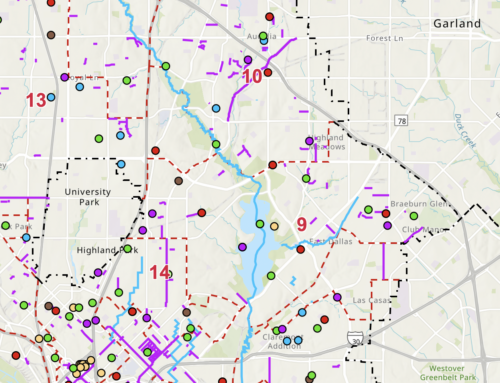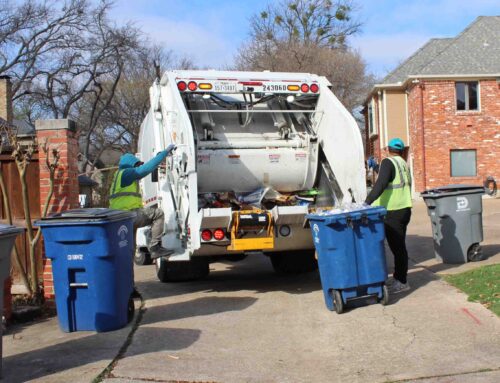Now that the mud has stopped being slung over the Arena vote and the Trinity River bond issue, a new and different (for Dallas) political coalition is emerging that has long-term implications for how this City will be run.
Pundits have made much of the fact that both the Arena and the Trinity votes were won by razor-thin margins, with overwhelming support from Oak Cliff and South Dallas precincts offsetting North Dallas’ skepticism.
The members on both issues show that they each received only about 43 percent of the total Anglo vote, but about 80 percent of the African-American voters supported each measure. When you win an election by 1,642 votes (the Arena) or 2,357 votes (the Trinity) those percentages loom huge in the final tally.
Don’t forget also that the two issues drew significantly more support in Anglo and mixed Old East Dallas and Oak Lawn precincts than in North Dallas and that the City’s big business and business organizations provided most of the funding to push both issues past the goal line.
This means two things, both of which are of great import for us right here in East Dallas. One is that the days when this City was run from, by (and for) North Dallas appear to be over. This has been on the way to fruition for a while, especially due to the demise of the at-large Council seats and the advent of the 14-1 system. Thus, it’s left to the minority communities, more moderate inner-city Anglo neighborhoods, and responsible elements of the business leadership to turn out the votes needed to purse their visions of the greater civic good.
The good news for us in this, on one level, is that it should help maintain our focus on keeping Downtown on the comeback trail and otherwise investing the City’s resources in its core (where we live), rather than spending your tax dollars and mine to subsidize infrastructure from Bent Tree to the Red River as was done in the high-rolling 1980s. It also means that these groups all become vital elements in future campaigns, which means a lot more political clout.
In a larger sense, this also means Dallas is becoming a better place to live because more of our fellow citizens are getting a serious opportunity to have a place at the table, which leads to more consensus and better decision-making. For years, the best way to get someone’s attention at Dallas City Hall was to intone the magic word “Atlanta” and then watch the beads of sweat appear. The other big Southern city (besides Houston) that we have long seen as our main economic rival got to be so successful because business and the African-American community there both realized that everyone prospered in an atmosphere of peace, fairness and reconciliation.
We may be about 25 years behind the curve, but a lot of us have figured out that might work in Dallas, too. Of course, it’s not just about money. We also need to own up to the fact that it’s long overdue that every group in our City has a better shot at political power and economic success.
In short, it’s just plain better and fairer – we’ll end up doing well by doing good, especially as we deal more and more with the outside world. And in the process, the interests of East Dallas and Lakewood should be well served.
Jonathan Vinson, a neighborhood resident, writes a monthly opinion column about neighborhood issues. His opinions are not necessarily those of the Advocate or its management. Send comments and ideas to him at 6301 Gaston, Suite 820, Dallas 75214; FAX 214-823-8866; or e-mail to editor@advocate.mag.




